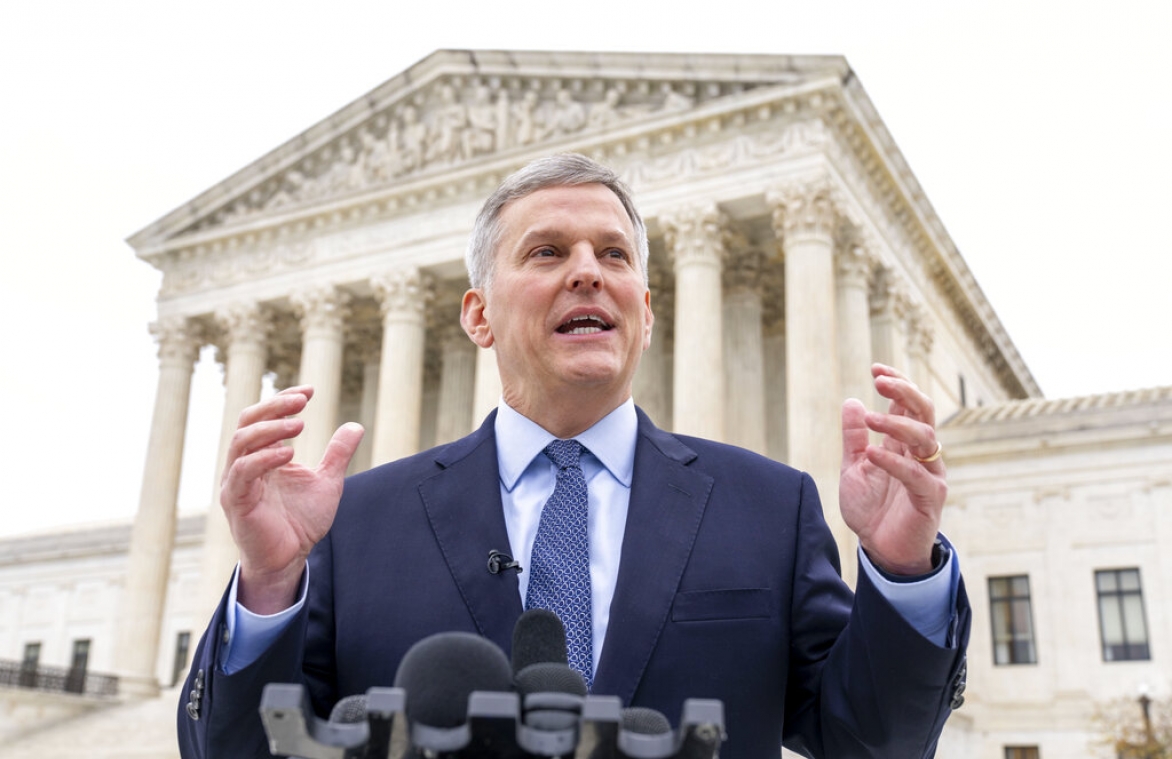By GARY D. ROBERTSON, Associated Press
RALEIGH, N.C. (AP) — A federal appeals court sided again with North Carolina’s attorney general on Feb. 8, saying a 1931 libel law is most likely unconstitutional. Josh Stein has sought to block a fellow Democrat from using the law to prosecute him over a 2020 campaign commercial.
In a unanimous result, the three-judge panel of the 4th U.S. Circuit Court of Appeals in Richmond, Va., agreed with Stein and others associated with his political committee who have been seeking to stop a probe by Wake County District Attorney Lorrin Freeman’s office.
Stein announced in January that he’s running for governor in 2024.
The same appeals panel in August granted a temporary injunction sought by Stein’s campaign, which was worried a Wake grand jury could indict Stein and advisers through the state law that makes certain political speech a crime.
“Not only have plaintiffs shown a likelihood of success, ‘it is difficult to imagine them losing,'” U.S. Circuit Judge Toby Heytens wrote in Wednesday’s prevailing opinion.
The law makes it a misdemeanor for someone to help circulate “derogatory reports” about a candidate designed to harm their election chances while “knowing such report to be false or in reckless disregard of its truth or falsity.”
Stein defended his 2020 commercial as a “corrective” to false accusations made by then-Republican AG challenger Jim O’Neill that Stein had failed to act on more than 15,000 untested rape kits since becoming attorney general in 2017. Stein’s ad accused O’Neill, the Forsyth County district attorney, of letting more than a thousand rape kits go untested.
O’Neill complained to the State Board of Elections at the time, citing the law. The case ultimately was sent to Freeman, who recused herself from the investigation, leaving it to a senior assistant prosecutor. Stein’s campaign sued in July after learning the DA’s office planned to soon send the case to grand jurors.
The Feb. 8 ruling vacates a decision by U.S. District Judge Catherine Eagles, who refused to order Freeman to stop using the law to prosecute anyone over the disputed commercial. She wrote Aug. 9 that the law appeared to meet the standard for exceptions to the First Amendment that allows the criminalization of “false defamatory speech about public officials made with actual malice.”
For now, the temporary injunction remains in place, and the lawsuit initially filed by Stein’s campaign seeking to have the law declared unenforceable continues.
Freeman wrote Wednesday afternoon in a text that the opinion was being reviewed and “anticipates making an announcement in the next 24 hours.” The opinion could weigh heavily on whether the DA’s office will stop seeking prosecutions. Or Freeman could ask the entire 4th Circuit to consider the case.
Heytens agreed with lawyers for Stein and others that Eagles erred when she decided “derogatory reports” only addressed false statements. Freeman’s attorney had said a fair reading of the law makes it clear that only false derogatory reports related to political speech are criminalized.
And since the law also criminalizes speech targeting political candidates when it’s intended to affect their chance to get elected, Heytens wrote, “speakers may lie with impunity about businesspeople, celebrities, purely private citizens or even government officials” as long as they are not running for office.
“That is textbook content discrimination,” he wrote.
Circuit Judge Albert Diaz joined Heytens in his written opinion, while in a separate opinion Circuit Judge Allison Rushing agreed that the plaintiffs would likely succeed on their First Amendment claim.
Stein attorney Press Millen said his clients are gratified that the 4th Circuit agreed that “North Carolina’s political libel statute violates core First Amendment principles.”
Freeman won reelection in November as the DA for North Carolina’s largest county. But she has taken heat from fellow Democrats. Gov. Roy Cooper, whom Stein succeeded as AG in 2017, called the potential prosecution “an unprecedented repression of free speech.”
The Free Speech Center newsletter offers a digest of First Amendment and news media-related news every other week. Subscribe for free here: https://bit.ly/3kG9uiJ

